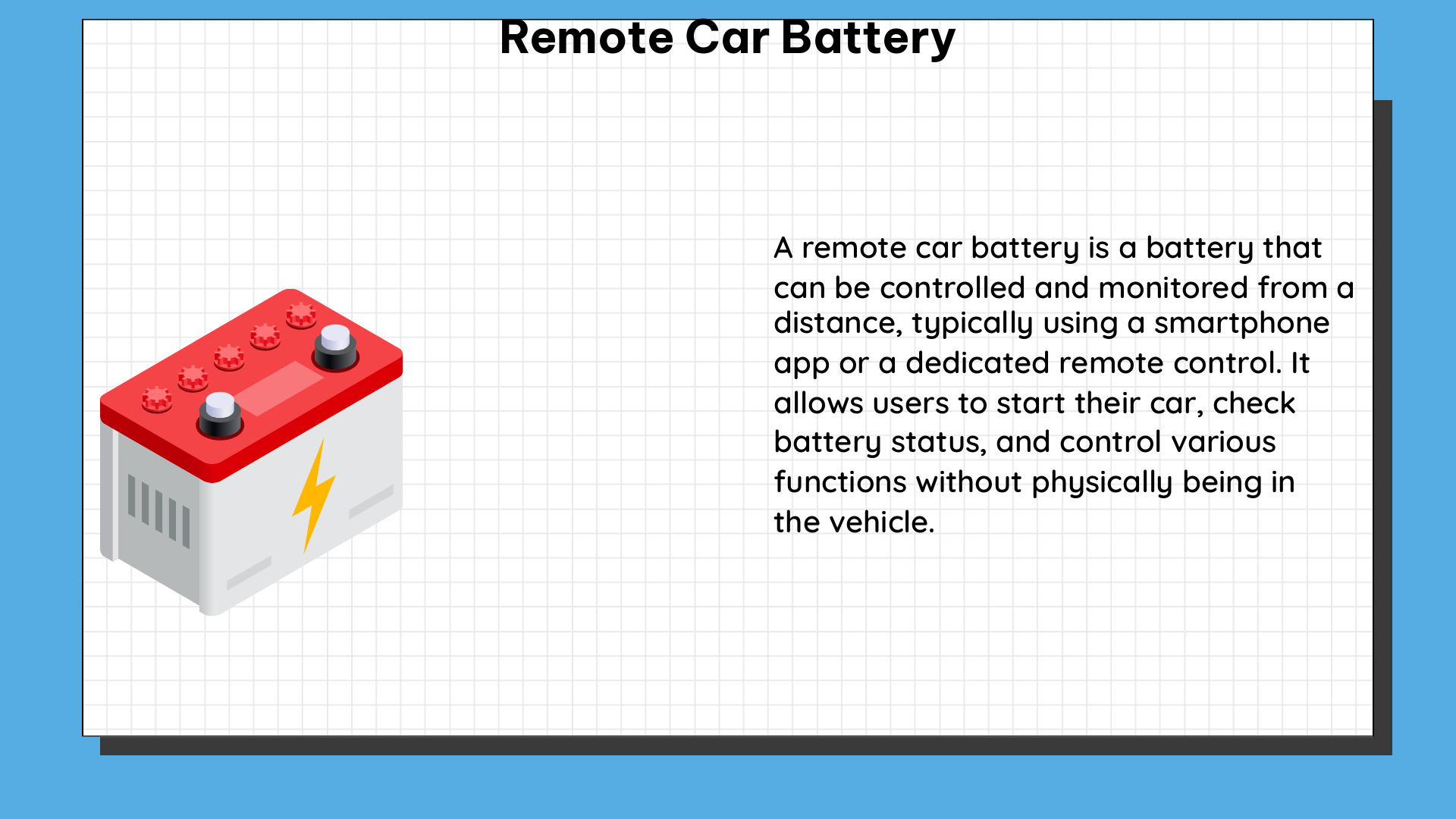Remote car batteries, also known as keyless entry fobs, are the unsung heroes of modern vehicle technology. These small, yet mighty, power sources are responsible for the seamless operation of your car’s keyless entry system, allowing you to unlock, start, and control your vehicle with the simple press of a button. In this comprehensive guide, we’ll dive deep into the world of remote car batteries, exploring their key features, performance metrics, and maintenance tips to help you keep your vehicle running smoothly.
Understanding Remote Car Battery Basics
Remote car batteries are typically coin-cell batteries, with the most common types being CR2032 and CR1616. These batteries are designed to provide a consistent 3-volt power supply to the keyless entry fob, which in turn transmits a radio frequency (RF) signal to your car’s receiver, unlocking the doors or starting the engine.
One of the critical factors in maintaining the performance of your remote car battery is monitoring its voltage. You can easily check the voltage using a multimeter set to the battery setting. Simply touch the positive (red) probe to the positive terminal and the negative (black) probe to the negative terminal. A healthy remote car battery should read around 3 volts. If the voltage is significantly lower, it’s time to replace the battery.
Evaluating Remote Car Battery Performance

When it comes to remote car battery performance, there are several key metrics to consider:
-
Power Capability and Efficiency: This is evaluated at the cell level by quantifying the battery cell and pack performance with current rate tests in charge/discharge mode. Manufacturers typically provide detailed specifications on the power output and efficiency of their remote car batteries.
-
Lifespan: The expected lifetime of a remote car battery can vary depending on usage patterns and environmental factors. On average, most remote car batteries last between 1-2 years before needing replacement.
-
Operating Temperature Range: Remote car batteries are designed to function reliably across a wide range of temperatures, typically from -40°C (-40°F) to 85°C (185°F). This ensures consistent performance in both extreme cold and heat.
-
Vibration and Shock Resistance: Remote car batteries must be able to withstand the vibrations and shocks experienced during normal vehicle operation without compromising their performance or integrity.
Maintaining and Replacing Remote Car Batteries
Proper maintenance of your remote car battery is crucial to ensure its longevity and reliable performance. Here are some tips to keep your remote car battery in top shape:
-
Regular Voltage Checks: As mentioned earlier, regularly checking the voltage of your remote car battery using a multimeter is essential. This will help you identify any potential issues before they become a problem.
-
Proper Storage: When not in use, store your remote car battery in a cool, dry place. Avoid exposing it to direct sunlight or high temperatures, as this can accelerate the battery’s self-discharge rate.
-
Timely Replacement: As a general rule, it’s recommended to replace your remote car battery every 1-2 years, or whenever the voltage drops significantly below 3 volts. Replacing the battery proactively can help prevent unexpected lockouts or starting issues.
When it’s time to replace your remote car battery, be sure to use a replacement that matches the original specifications. This will ensure compatibility and optimal performance. Additionally, consider investing in a high-quality replacement battery from a reputable manufacturer to ensure long-lasting reliability.
Advanced Battery Metrics for Electric Vehicles
While the focus of this guide has been on remote car batteries, it’s worth noting that the performance metrics for electric vehicle (EV) batteries are even more complex and critical. Some of the key metrics used to evaluate EV battery performance include:
-
Range: The distance an EV can travel on a single charge, which is directly influenced by the battery’s energy density and capacity.
-
Efficiency: The energy efficiency of the electric powertrain, which measures how much of the battery’s energy is used to propel the vehicle.
-
Lifetime: The expected lifespan of an EV battery, which is influenced by factors such as charging patterns, temperature, and usage.
-
Cold Cranking Amps (CCA): The number of amps a battery can provide at 0°F for 30 seconds before dropping below 7.2 volts, which is crucial for EV performance in cold climates.
-
Reserve Capacity (RC): The length of time a battery can provide 25 amps of power before dropping below 10.5 volts, another important metric for EV battery performance.
Manufacturers and researchers continuously work to improve these metrics, driving advancements in battery technology and ensuring that EVs can meet the demands of modern driving.
Conclusion
Remote car batteries may be small, but they play a vital role in the seamless operation of your vehicle’s keyless entry system. By understanding the key features, performance metrics, and maintenance requirements of these power sources, you can ensure that your remote car battery remains reliable and long-lasting. Whether you’re a DIY enthusiast or simply want to keep your vehicle running smoothly, this guide has provided you with the essential knowledge to master the world of remote car batteries.
References:
- Tesla 2021 Impact Report
- Measure Your Car Key Fob Battery with a Multimeter (Easy!)
- Quantifying the state of the art of electric powertrains in battery electric vehicles: Range, efficiency, and lifetime from component to system level of the Volkswagen ID.3
- Key Metrics of Battery Performance for Today’s Engines
- Lithium-ion battery data and where to find it

The lambdageeks.com Core SME Team is a group of experienced subject matter experts from diverse scientific and technical fields including Physics, Chemistry, Technology,Electronics & Electrical Engineering, Automotive, Mechanical Engineering. Our team collaborates to create high-quality, well-researched articles on a wide range of science and technology topics for the lambdageeks.com website.
All Our Senior SME are having more than 7 Years of experience in the respective fields . They are either Working Industry Professionals or assocaited With different Universities. Refer Our Authors Page to get to know About our Core SMEs.